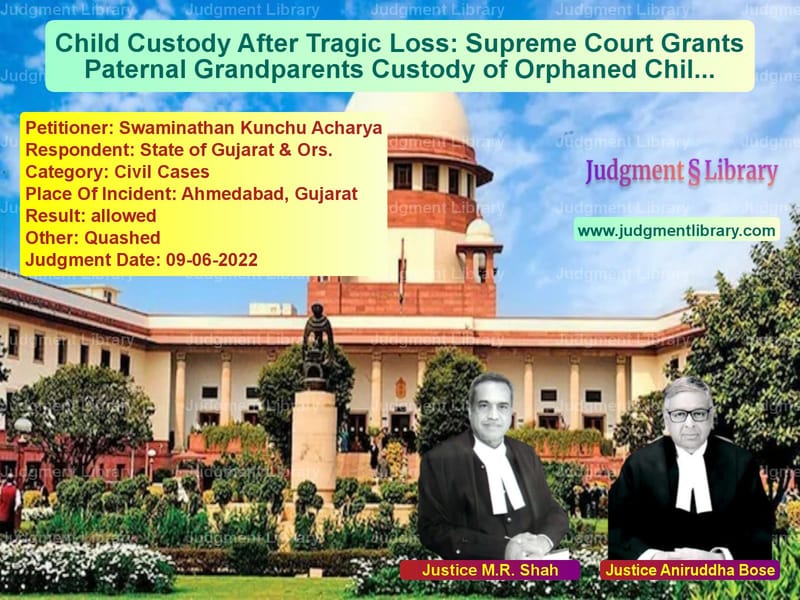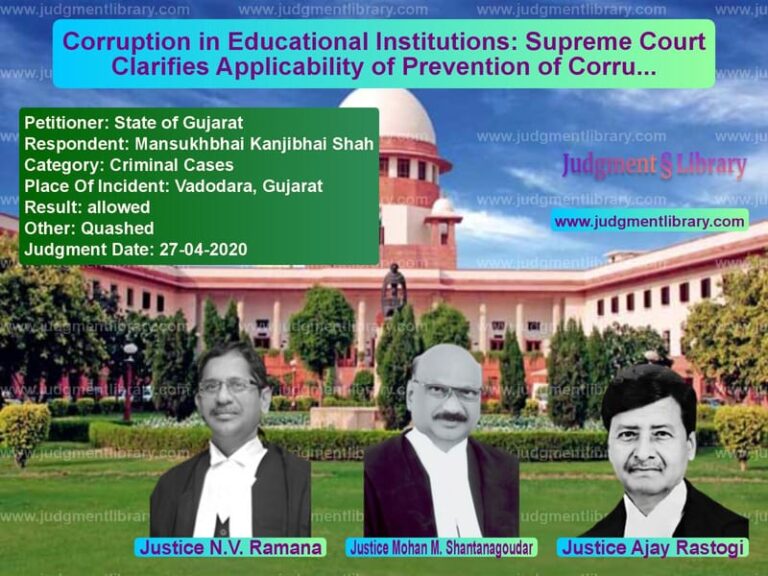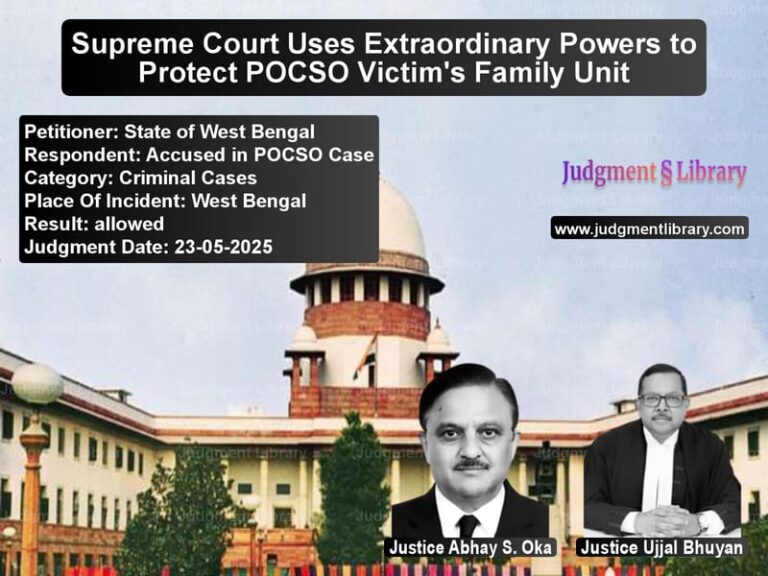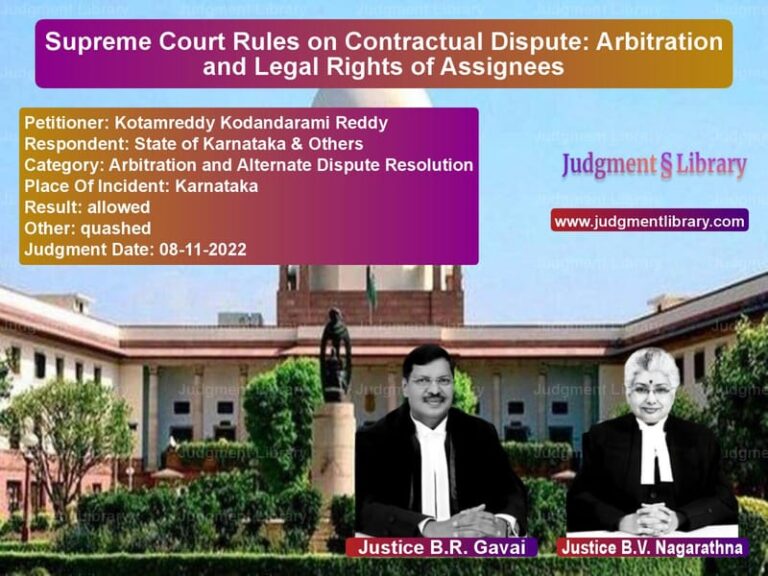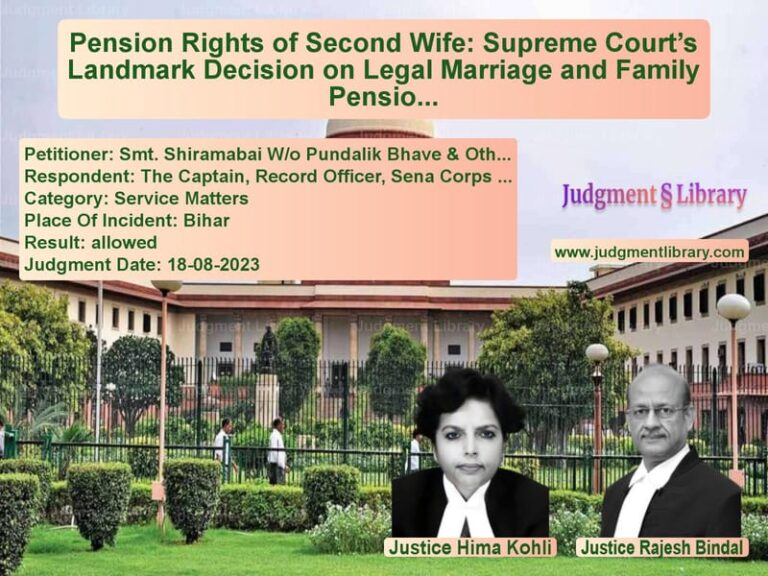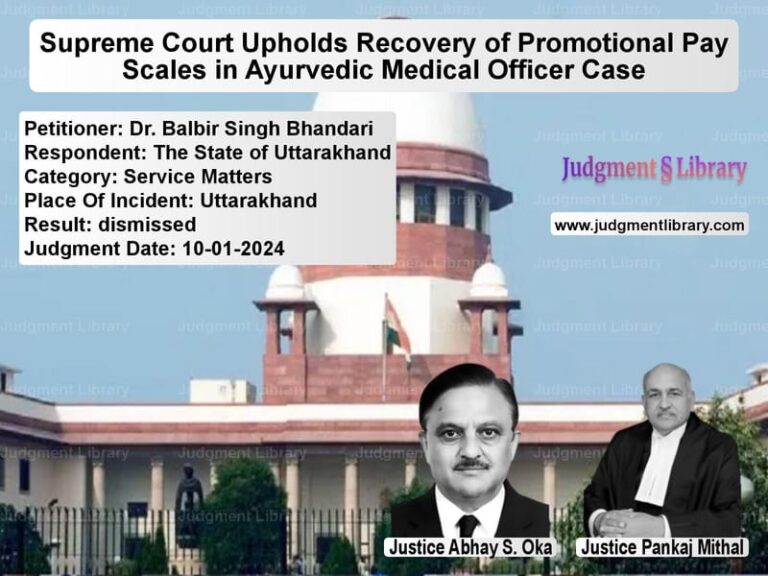Child Custody After Tragic Loss: Supreme Court Grants Paternal Grandparents Custody of Orphaned Child
The Supreme Court recently ruled on an emotional and complex child custody case in Swaminathan Kunchu Acharya v. State of Gujarat & Ors.. The case concerned the custody of a five-year-old boy who tragically lost both his parents during the COVID-19 pandemic. The dispute was between the child’s paternal grandfather and his maternal aunt.
The Supreme Court set aside the Gujarat High Court’s order, which had awarded custody to the maternal aunt. Instead, the Court ruled in favor of the paternal grandparents, emphasizing their emotional bond and ability to care for the child.
Background of the Case
The case arose after the child, Pranav Acharya, lost both his parents to COVID-19. His father, Rajesh Acharya, passed away on May 13, 2021, and his mother, Rakhi Acharya, succumbed to the virus on June 12, 2021. At the time, Pranav was residing with his maternal aunt in Dahod, Gujarat.
The child’s paternal grandfather, Swaminathan Kunchu Acharya, aged 71, sought custody, arguing that the child belonged with his father’s family. However, the maternal aunt, Hemangini Shuryanvanshi, aged 46, contested the claim, asserting that she could provide a better future for Pranav.
The legal battle progressed as follows:
- September 13, 2021: Gujarat High Court granted interim custody to the paternal grandfather.
- May 2, 2022: Gujarat High Court ruled in favor of the maternal aunt.
- June 9, 2022: Supreme Court reversed the High Court’s order, granting custody to the paternal grandparents.
Petitioner’s Arguments
The paternal grandfather argued that:
- The child had been living with the paternal grandparents since the interim order, and there were no complaints about his well-being.
- It was wrong to assume that because he was 71 years old, he could not provide proper care.
- Grandparents in Indian society play a significant role in raising grandchildren, particularly in the absence of parents.
- They had already enrolled the child in a reputed school in Ahmedabad, ensuring better educational opportunities.
Respondent’s Arguments
The maternal aunt countered with the following points:
- She was younger and in a better position to care for the child.
- She had a government job and a stable income.
- The child had already been admitted to a good school in Dahod, where she resided.
- Her joint family would provide a supportive environment for the child’s upbringing.
Key Observations of the Supreme Court
The Supreme Court ruled in favor of the paternal grandfather, stating:
“In our society, paternal grandparents would always take better care of their grandson. One should not doubt their capacity or ability to do so.”
The Court emphasized:
- Age alone should not be a disqualifying factor in child custody cases.
- The child had expressed his desire to stay with his paternal grandparents.
- The emotional bond between grandparents and grandchildren was an important factor in determining custody.
- Ahmedabad, a metro city, offered better educational opportunities than Dahod.
- There was no evidence that the grandparents had neglected the child during the interim custody period.
Final Judgment and Directions
The Supreme Court ruled as follows:
- The High Court’s decision to grant custody to the maternal aunt was quashed.
- The paternal grandparents were given full custody of Pranav Acharya.
- The maternal aunt was granted visitation rights, allowing her to meet the child once a month.
- The child could visit his maternal aunt during holidays and vacations, subject to his wishes.
- Regular video calls between the child and the maternal aunt were encouraged.
Conclusion
This judgment reinforces the importance of emotional bonds in child custody cases. The Supreme Court recognized that while financial stability and age are relevant, they should not be the sole deciding factors. The ruling prioritizes the child’s well-being, ensuring he remains in a familiar and loving environment.
Additionally, the decision sets a precedent for future custody disputes, highlighting that courts must look beyond conventional family structures and consider what is truly in the best interest of the child.
Petitioner Name: Swaminathan Kunchu Acharya.Respondent Name: State of Gujarat & Ors..Judgment By: Justice M.R. Shah, Justice Aniruddha Bose.Place Of Incident: Ahmedabad, Gujarat.Judgment Date: 09-06-2022.
Don’t miss out on the full details! Download the complete judgment in PDF format below and gain valuable insights instantly!
Download Judgment: swaminathan-kunchu-a-vs-state-of-gujarat-&-o-supreme-court-of-india-judgment-dated-09-06-2022.pdf
Directly Download Judgment: Directly download this Judgment
See all petitions in Succession and Wills
See all petitions in Judgment by Mukeshkumar Rasikbhai Shah
See all petitions in Judgment by Aniruddha Bose
See all petitions in allowed
See all petitions in Quashed
See all petitions in supreme court of India judgments June 2022
See all petitions in 2022 judgments
See all posts in Civil Cases Category
See all allowed petitions in Civil Cases Category
See all Dismissed petitions in Civil Cases Category
See all partially allowed petitions in Civil Cases Category

